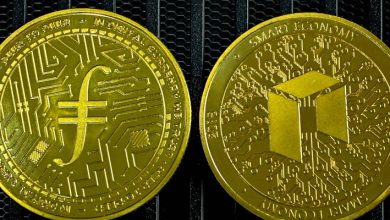Crypto and GDPR: What You Need to Know

- Understanding the intersection of cryptocurrency and GDPR regulations
- Key considerations for businesses using cryptocurrency under GDPR
- How GDPR impacts the use of blockchain technology in the crypto space
- Navigating the complexities of data protection in the world of cryptocurrency
- Ensuring compliance with GDPR while engaging in crypto transactions
- The evolving landscape of data privacy laws and their implications for cryptocurrency users
Understanding the intersection of cryptocurrency and GDPR regulations
Understanding the relationship between cryptocurrency and GDPR regulations is crucial for businesses operating in the digital asset space. The General Data Protection Regulation (GDPR) is a set of rules designed to protect the personal data of individuals within the European Union. When it comes to cryptocurrency, there are several key considerations to keep in mind to ensure compliance with GDPR requirements.
One of the main challenges for cryptocurrency businesses is the issue of data privacy. Since blockchain technology, which underpins most cryptocurrencies, is decentralized and transparent, it can be difficult to ensure that personal data is adequately protected. However, GDPR mandates that businesses must take appropriate measures to safeguard personal data, regardless of the technology they are using.
Another important aspect to consider is the transfer of personal data outside of the EU. Cryptocurrency transactions often involve the transfer of data across borders, which can pose a risk to data privacy. GDPR imposes restrictions on the transfer of personal data to countries outside the EU that do not have adequate data protection laws in place. Businesses must therefore be mindful of where their data is being transferred and ensure that it is done in compliance with GDPR.
Key considerations for businesses using cryptocurrency under GDPR
When it comes to businesses using cryptocurrency under GDPR, there are several key considerations to keep in mind to ensure compliance with data protection regulations. Here are some important points to consider:
- Transparency: Businesses must be transparent about how they collect, store, and process personal data when using cryptocurrency. This includes informing individuals about the purposes for which their data is being used.
- Security: It is crucial for businesses to implement robust security measures to protect the personal data of individuals when using cryptocurrency. This includes encryption, access controls, and regular security audits.
- Consent: Businesses must obtain explicit consent from individuals before collecting their personal data when using cryptocurrency. This consent must be freely given, specific, informed, and unambiguous.
- Data Minimization: Businesses should only collect the personal data that is necessary for the purposes for which it is being processed when using cryptocurrency. They should also ensure that this data is kept accurate and up to date.
- Accountability: Businesses are responsible for complying with GDPR requirements when using cryptocurrency. This includes keeping detailed records of data processing activities and conducting data protection impact assessments.
How GDPR impacts the use of blockchain technology in the crypto space
When it comes to the use of blockchain technology in the crypto space, the General Data Protection Regulation (GDPR) has a significant impact. GDPR is a set of regulations designed to protect the personal data of individuals within the European Union. This means that any organization or individual involved in the crypto space must comply with GDPR regulations when handling personal data.
One of the key ways in which GDPR impacts the use of blockchain technology in the crypto space is through the concept of data protection by design and by default. This means that organizations must consider data protection principles when designing their blockchain systems. They must also ensure that only necessary personal data is stored on the blockchain and that this data is protected from unauthorized access.
Another important aspect of GDPR compliance in the crypto space is the right to be forgotten. This means that individuals have the right to request that their personal data be erased from a blockchain system. This can be challenging in a technology like blockchain, where data is meant to be immutable. However, organizations must find ways to comply with these requests while still maintaining the integrity of the blockchain.
Overall, GDPR has forced organizations in the crypto space to rethink how they handle personal data on the blockchain. By ensuring compliance with GDPR regulations, organizations can build trust with their users and avoid potential fines for non-compliance. It is essential for organizations in the crypto space to stay up to date with GDPR regulations and make any necessary changes to their blockchain systems to ensure compliance.
Navigating the complexities of data protection in the world of cryptocurrency
When it comes to the intersection of cryptocurrency and data protection, navigating the complexities can be challenging. With the rise of digital currencies, ensuring compliance with regulations such as the General Data Protection Regulation (GDPR) is crucial for businesses operating in this space.
One of the key considerations for cryptocurrency companies is the handling of personal data. As transactions are recorded on a public ledger, ensuring the anonymity and security of user information is paramount. Failure to protect this data can not only result in regulatory fines but also damage the reputation of the company.
Implementing robust data protection measures, such as encryption and access controls, can help mitigate the risks associated with handling sensitive information. Additionally, conducting regular audits and assessments can ensure that data protection practices are up to date and in compliance with the GDPR.
It is also important for cryptocurrency companies to be transparent with users about how their data is being used and stored. Providing clear and concise privacy policies can help build trust with customers and demonstrate a commitment to data protection.
Overall, navigating the complexities of data protection in the world of cryptocurrency requires a proactive approach and a thorough understanding of regulatory requirements. By prioritizing data protection and implementing best practices, cryptocurrency companies can safeguard user information and ensure compliance with the GDPR.
Ensuring compliance with GDPR while engaging in crypto transactions
When engaging in crypto transactions, it is crucial to ensure compliance with the General Data Protection Regulation (GDPR). This regulation aims to protect the personal data of individuals within the European Union (EU) and imposes strict requirements on how organizations handle and process this data.
One key consideration when dealing with crypto transactions is the collection and storage of personal data. It is essential to only collect the minimum amount of data necessary for the transaction and to encrypt this data to protect it from unauthorized access.
Another important aspect to consider is transparency. Individuals must be informed about how their data will be used in relation to crypto transactions and must consent to its processing. This means providing clear and concise information about the purposes of data processing and obtaining explicit consent before proceeding.
Furthermore, organizations engaging in crypto transactions must ensure that they have appropriate security measures in place to protect personal data. This includes implementing access controls, encryption techniques, and regular security audits to identify and address any vulnerabilities.
In the event of a data breach involving crypto transactions, organizations must notify the relevant authorities and affected individuals within 72 hours of becoming aware of the breach. Failure to comply with these requirements can result in severe penalties under the GDPR.
The evolving landscape of data privacy laws and their implications for cryptocurrency users
The evolving landscape of data privacy laws has significant implications for users of cryptocurrency. With the introduction of regulations such as the General Data Protection Regulation (GDPR), individuals are now more empowered to control how their personal information is collected and used by companies operating in the cryptocurrency space.
Under GDPR, cryptocurrency users have the right to access their personal data held by companies, request its deletion, and withdraw consent for its processing. This means that cryptocurrency exchanges and wallet providers must ensure they are compliant with these regulations to avoid hefty fines and maintain the trust of their users.
Furthermore, the intersection of cryptocurrency and GDPR raises questions about the anonymity of transactions on the blockchain. While cryptocurrencies are often touted as being anonymous, the immutable nature of the blockchain means that transactions can be traced back to individuals, potentially conflicting with GDPR’s principles of data minimization and purpose limitation.
As regulators continue to grapple with the challenges posed by cryptocurrency, users must stay informed about their rights and responsibilities under data privacy laws. By understanding the implications of GDPR and other regulations, cryptocurrency users can protect their personal information while still enjoying the benefits of this innovative technology.



